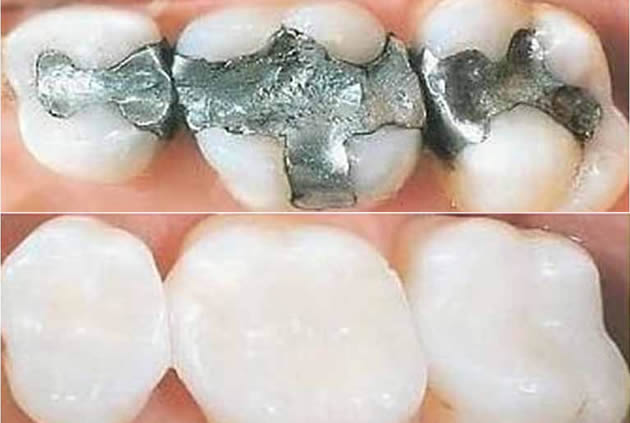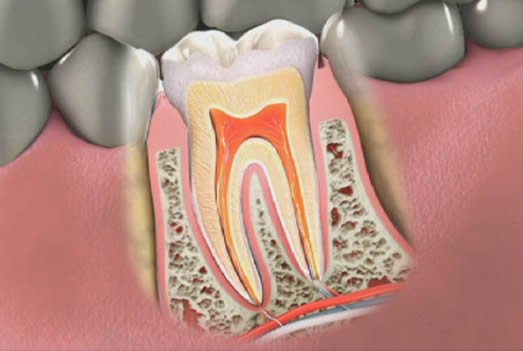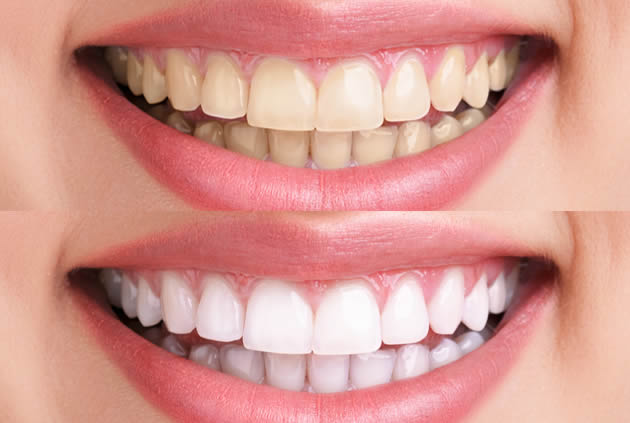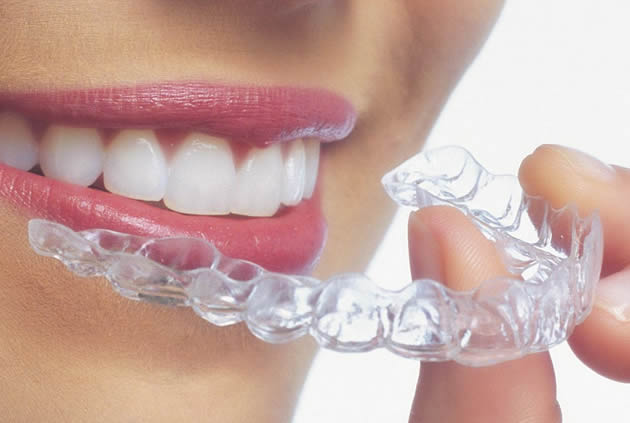
If you are dealing with ongoing tooth pain, you may be too fearful to go to the dentist to find out what’s going on. It’s important that you do, however, as you may need root canal therapy. Your dentist will need to evaluate you to see if that procedure is necessary, and will closely examine several factors: the signs the dentist can see personally, the results of any tests performed during your visit, and the symptoms you have been experiencing with the problematic tooth.
Your dentist may observe:
- A tooth that is discolored
- X-rays that reveal a tooth problem
- A fistulous tract, or persistent or recurring gum pimple
Additional testing done by your dentist:
- X-rays provide an extremely clear picture of the health of the tooth
- Thermal testing can evaluate sensitivity through a careful application of hot or cold temperatures
- Percussion testing evaluates pain response through gentle tapping
You may have been noticing:
- A broken or cracked tooth obviously decayed or damaged
- A discolored tooth, especially a grey tooth
- A “bubble” in your gums, like a pimple. It may or may not have ruptured, leaking pus that smells or tastes awful
- Pain that shoots out from one tooth to your jaw or ear, leading to earache symptoms
- Pain that prevents you from living your life without painkillers
- Pain, sensitivity or swelling on one certain tooth
- Extreme sensitivity to hot or cold liquids that lingers and is very painful
In some cases, an infected tooth that requires a root canal treatment has no symptoms at all that could be discerned by you. Only a dental professional can confirm the need to undergo root canal therapies. If you are experiencing pain that disrupts your life, talk to your dentist or endodontist immediately. Root canal treatments are designed to relieve the pain you’re experiencing now and to restore your tooth to full form and function. Don’t wait to get your life and smile back!
We treat patients from Baltimore and the surrounding area

Dental implants provide an innovative solution for replacing missing teeth. A titanium rod is surgically placed in the jaw so that it can fuse with the bone, and ultimately an artificial tooth is placed on top to complete the process. This type of surgery is an intricate process that should be performed by a qualified and experienced dentist or oral surgeon. Even patients under the care of the most skilled professionals sometimes encounter problems with dental implants. Here are some risks to watch out for with this procedure.
Infection:
The most common concern with nearly any type of surgery is the possibility of infection. Oral surgery is no different, with the risk of infection related to tissue and gums. Carefully following the dentist’s instructions for aftercare and any restrictions is vital in avoiding infection.
Nerve and tissue damage:
During dental implant surgery, various nerves and tissue are involved. A qualified healthcare professional should have years of experience in carefully performing the surgery so that tissue and nerves are not damaged in the process.
Improper fusing:
One key element of a successful dental implant is for it to fuse properly with the jaw bone. If that does not occur, pain or other issues may result. The dental implant must be attached carefully and the patient must follow the recovery guidelines in order to help guarantee a successful outcome.
Dental implants are becoming more and more common to restore the function and appearance of a healthy mouth. The best way to steer clear of the risks associated with this procedure is to seek treatment from a reputable and well-established professional. Between having a high-quality procedure and making smart choices throughout recovery, the likelihood of a successful dental implant increases.
We treat patients from Baltimore and the surrounding area

Dental implants are used to replace individual or missing teeth or to anchor loose dentures. For many patients with these issues, traditional dental implants may not a viable option. For example, a patient who does not possess adequate bone levels to anchor the implants would not be a good candidate for traditional dental implants. With mini dental implants, the bone required to anchor the implant successfully is much less.
Thanks to advances in implant dentistry, these patients have other options. Mini dental implants have emerged as an attractive choice for cases that are not conducive to the placement of traditional implants. For the patient who has inadequate bone, the bone required to successfully anchor mini dental implants is much less. Unlike traditional implants, the placement procedure for mini dental implants is a minimally invasive procedure that can be completed in one appointment by a specially trained general or family dentist. Because the procedure is less involved, the pain and length of recovery is greatly diminished.
Patients who have existing health conditions that would preclude them from more invasive surgery may find mini dental implants an extremely appealing option. Mini implants are also a perfect choice for restoring one missing or damaged tooth. Should implant failure occur, grafting procedures would not be necessary because of the small size with mini dental implants.
Most importantly, mini dental implants maintain the look, feel and function of your natural teeth. While you have to wait months for traditional implants to fuse with the bone, mini dental implants are ready for immediate use. Talk to your dentist to determine if mini dental implants would be a good option for your dental restorations and get ready to face the world with a confident new smile.
Our dental office is located in Baltimore

Restorative dentistry has made incredible advancements in the technology of restorative dental materials, and there are more options than ever today for your dental crown or dental bridge. Zirconium and porcelain have proven to provide lasting strength and durability, exhibiting the most natural cosmetic dental restorations available today. Each tooth in each mouth is different, however, and in some cases, resin composite or metal alloy might be the choice recommended for you.
Metals are a common choice for dental crowns and dental bridges. Gold or palladium alloys, as well as chromium or nickel (base-metal) alloys can be excellent choices. Metal alloy crowns show the least “wear down” over years of use. They almost never chip, break or wear down opposing teeth. The primary complaint about metal alloy materials is that their color is metallic and thereby unnatural. They will not blend with the surrounding teeth, and as such, they are chosen more for back molars where they won’t draw attention.
Dental composite/resin materials are a popular choice that can be made to blend with the surrounding teeth, but they’ve been shown to wear down over time and are more prone to fractures and breaking than other materials.
Porcelain can be fused to metal to form a natural-appearing crown or bridge, and because of their appearance, are a good choice for front or back teeth. Over time, however, discoloration can appear along the gum line as the porcelain wears away, leaving a dark, unsightly line. The porcelain can be fused to zirconium, however, which eliminates the dark line and is a good cosmetic choice for front teeth.
Crowns and bridges can also be made from all-porcelain or all-ceramic materials. These materials are the best choice for natural-looking teeth of the types of dental crown and dental bridge materials available in restorative dentistry today. Because they contain no metal, they are excellent choices for patients with metal allergies. They tend to be weaker and less durable than materials containing metals, however.
Talk to your cosmetic dentist today with any questions you have regarding what type of dental crown or bridge material is best for your smile needs.
We treat patients from Baltimore and the surrounding area

If you have severely damaged, diseased or injured teeth, your dentist may recommend crown and bridge treatment. A crown is a dental restoration that fully covers a tooth and becomes the tooth’s new outer surface. A bridge is also a dental restoration that is anchored to natural teeth. However, a bridge replaces and fills the gap left by multiple missing teeth. Both crowns and bridges are made from a variety of materials and can be matched to the color of your natural teeth. Unlike removable dental devices like dentures, crowns and bridges are permanently affixed to existing teeth or implants allowing them to look and function similarly to natural teeth.
In addition to restored function and appearance, crowns and bridges offer a host of additional benefits including:
- Dental crowns protect and strengthen the natural tooth, helping you to avoid extraction.
- Crowns are the final step in root canal treatment, protecting the tooth from bacteria that could re-infect the treated tooth.
- Crowns and bridges restore missing teeth and support the remaining teeth.
- Your natural bite is restored and maintained with crown and bridge treatment.
- Placement of crowns and bridges improve your speech, smile and chewing function.
- Adjacent teeth are prevented from shifting and tilting with crown and bridge treatment.
- Crowns and bridges are long-lasting, predictable and durable.
- Placement of crowns and bridges is quick and can usually be completed in as little as two appointments.
- Alternatives to crown and bridgework, like dental implants, are usually more invasive requiring surgery and possibly bone grafting to place the implant.
Consult with your dentist to find out more about the advantages of crowns and bridges and how they can help to restore your healthy smile.
If you need a dentist in Baltimore contact us today

Tooth decay that is allowed to become severe can cause extensive damage to your tooth, even resulting in tooth loss if not treated. Sometimes symptoms are present that cause you to visit your dentist, but other times it’s just a regular checkup that catches a problem.
The source of trouble usually begins with a small area of tooth decay that goes unnoticed. Bacteria attacks, decay thrives, a cavity may form, and infection can spread. Cavities may be filled to repair the tooth and eradicate infection, but advanced cases of decay can reach the tooth’s interior. Once it gets to the pulp, serious damage can set in. This is when symptoms often appear, sometimes becoming severe.
Once damage reaches your tooth’s pulp, some common symptoms that will prompt you to call your dentist may include:
- Slight to severe pain when biting, chewing, or even putting slight pressure on the tooth
- Minor to extreme sensitivity when your tooth comes into contact with anything hot or cold
- Inflammation or swelling near the gum line surrounding the affected tooth
- Ongoing aches in the general area of the damaged tooth, including headaches, neck aches, or earaches
- Ulcers or bumps near the damaged tooth
- Difficulty performing normal mouth functions like eating
If you experience any of these symptoms, it’s time to visit your dentist for an evaluation. Root canal therapy might be recommended to restore your tooth’s health and regain comfort and functionality. Root canal treatment involves cleaning the damaged areas of the tooth pulp to remove infection and bacteria, filling the open space, and sealing it to prevent future damage. Sometimes a crown is placed on top to complete the process.
When a tooth is severely damaged, root canal therapy provides your best chance for restoration and optimum oral health. Your dentist will effectively and safely perform the procedure, and at the same time relieve the related symptoms that you may be experiencing.
Schedule your appointment at our Baltimore dental office
















